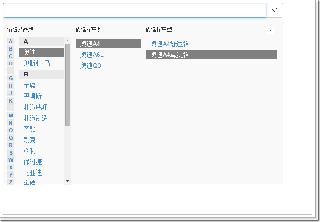詳解 iOS 系統(tǒng)中的視圖動(dòng)畫
動(dòng)畫為用戶界面的狀態(tài)轉(zhuǎn)換提供了流暢的可視化效果, 在 iOS 中大量使用了動(dòng)畫效果, 包括改變視圖位置、 大小、 從可視化樹中刪除視圖, 隱藏視圖等。 你可以考慮用動(dòng)畫效果給用戶提供反饋或者用來實(shí)現(xiàn)有趣的特效。
在 iOS 系統(tǒng)中, Core Animation 提供了內(nèi)置的動(dòng)畫支持, 創(chuàng)建動(dòng)畫不需要任何繪圖的代碼, 你要做的只是激發(fā)指定的動(dòng)畫, 接下來就交給 Core Animation 來渲染, 總之, 復(fù)雜的動(dòng)畫只需要幾行代碼就可以了。
哪些屬性可以添加動(dòng)畫效果根據(jù) iOS 視圖編程指南中說明, UIView 內(nèi)置支持為下列屬性添加動(dòng)畫效果:
Frame 可以改變視圖相對(duì)于上一級(jí)視圖的位置和大小。 (如果視圖已經(jīng)經(jīng)過了縮放、 旋轉(zhuǎn)、平移之類的變換, 則需要修改 Center 和 Bounds 屬性) Bounds 改變視圖大小。 Center 改變視圖相對(duì)于上級(jí)視圖的位置。 Transform 相對(duì)于中心點(diǎn)進(jìn)行視圖縮放、旋轉(zhuǎn)和平移, 這個(gè)屬性只能進(jìn)行二維轉(zhuǎn)換。 (如果要進(jìn)行三維轉(zhuǎn)換, 則必須用 CoreAnimation 操作視圖的 Layer 屬性。) Alpha 改變視圖的透明度。 BackgroundColor 修改視圖的背景色。 ContentStretch 改變視圖內(nèi)容在視圖的可用空間內(nèi)的拉伸方式。 為視圖的屬性變化添加動(dòng)畫為了給屬性的變化添加動(dòng)畫效果, 需要把修改這些屬性的代碼放到指定的動(dòng)畫代碼段 (animation block) 中。 只有在動(dòng)畫代碼段中修改支持動(dòng)畫的屬性, 才能添加動(dòng)畫效果。
使用 Begin/Commit 方法做動(dòng)畫在 iOS 3.0 以及之前的系統(tǒng)中, 必須使用 UIView 的類方法 beginAnimations:context: 和 commitAnimations 來定義動(dòng)畫代碼段, 在 begin 和 commit 之間的代碼會(huì)在特殊的動(dòng)畫線程中運(yùn)行, 因此不會(huì)阻塞主線程, 比如說要切換兩個(gè)視圖, 代碼應(yīng)該是這樣子的:
[UIView beginAnimations:@'ToggleViews' context:nil];[UIView setAnimationDuration:1.0]; // Make the animatable changes.firstView.alpha = 0.0;secondView.alpha = 1.0; // Commit the changes and perform the animation.[UIView commitAnimations];
在 Xamarin.iOS (MonoTouch) 平臺(tái)下, begin/end 方法對(duì)應(yīng)的綁定為:
public static void BeginAnimations (string animation) public static void BeginAnimations (string animationID, IntPtr context) public static void CommitAnimations ()上面的切換視圖的 C# 版本代碼為:
UIView.BeginAnimations('ToggleViews');UIView.SetAnimationDuration(1.0)this.FirstView.Alpha = 0.0;this.SecondView.Alpha = 1.0;UIView.CommitAnidations();
在 Begin/Commit 函數(shù)之間, 可以通過下面的方法設(shè)置動(dòng)畫的參數(shù)和選項(xiàng):
setAnimationStartDate: setAnimationDelay: setAnimationDuration: setAnimationCurve: setAnimationRepeatCount: setAnimationRepeatAutoreverses: setAnimationDelegate: setAnimationWillStartSelector: setAnimationDidStopSelector: setAnimationBeginsFromCurrentState:注意: 如果不是為了支持很舊的設(shè)備, 則推薦使用下面的 lambda (block based method) 來實(shí)現(xiàn)動(dòng)畫效果, 雖然 begin/commit 還能夠使用, 按照官方的說法, 對(duì)新系統(tǒng)來說是不推薦的了。
使用 lambda (block based method) 做動(dòng)畫在 iOS 4.0 以后, 引入了代碼塊 (code block) 的概念, 可以使用代碼塊來初始化動(dòng)畫, 這也是在 iOS 4.0 之后蘋果推薦的做法, iOS SDK 提供的 API 如下:
animateWithDuration:animations: animateWithDuration:animations:completion: animateWithDuration:delay:options:animations:completion:而在 Xamarin.iOS (MonoTouch) 平臺(tái)下, 這些方法被綁定為下列方法:
public static void Animate(double duration, NSAction animation) public static void Animate (double duration, NSAction animation, NSAction completion) public static void Animate (double duration, double delay, UIViewAnimationOptions options, NSAction animation, NSAction completion)還是切換視圖的動(dòng)畫, 如果用 objective-c 的代碼塊來實(shí)現(xiàn), 則應(yīng)該是這樣子的:
[UIView animateWithDuration:1.0 animations:^{ self.firstView.alpha = 0.0; self.secondView.alpha = 1.0;}];
如果用 C# 來實(shí)現(xiàn)的話, 應(yīng)該是這樣:
UIView.Animate(1.0, () => { this.FirstView.Alpha = 0.0f; this.SecondView.Alpha = 1.0f;});
這樣就實(shí)現(xiàn)了一個(gè)簡(jiǎn)單的漸變動(dòng)畫, 并且只能運(yùn)行一次, 通常不能滿足需求, 再來一個(gè)復(fù)雜點(diǎn)兒的:
[UIView animateWithDuration:1.0 delay:0.0 options:UIViewAnimationOptionCurveEaseIn animations:^{ self.firstView.alpha = 0.0; } completion:^(BOOL finished){ [UIView animateWithDuration:1.0 delay:1.0 options:UIViewAnimationOptionCurveEaseOut animations:^{ self.firstView.alpha = 1.0; } completion:nil];}];
對(duì)應(yīng)的 C# 代碼如下:
UIView.Animate( 1.0, 0.0, UIViewAnimationOptions.CurveEaseIn, () => this.FirstView.Alpha = 0.0f, () => { UIView.Animate( 1.0, 1.0, UIViewAnimationOptions.CurveEaseOut, () => this.FirstView.Alpha = 1.0f, null ); });嵌套動(dòng)畫
iOS 支持嵌套的動(dòng)畫, 也就是說在一個(gè)動(dòng)畫代碼段中, 可以再開始另外一個(gè)動(dòng)畫代碼段, 而不必等當(dāng)前動(dòng)畫完成, 嵌套的動(dòng)畫會(huì)同時(shí)開始運(yùn)行, 默認(rèn)繼承原來動(dòng)畫的延時(shí)、 時(shí)間長(zhǎng)度、 加速曲線等, 不過這些選項(xiàng)也能被覆蓋。 例如:
[UIView animateWithDuration:1.0 delay:1.0 options:UIViewAnimationOptionCurveEaseOut animations:^{ self.firstView.alpha = 0.0f; // 這里開始一個(gè)新的動(dòng)畫 [UIView animateWithDuration:1.0 delay:0.0 options:UIViewAnimationOptionOverrideInheritedCurve |UIViewAnimationOptionCurveLinear |UIViewAnimationOptionOverrideInheritedDuration |UIViewAnimationOptionRepeat |UIViewAnimationOptionAutoreverse animations:^{[UIView setAnimationRepeatCount:2.5];self.secondView.alpha = 0.0f; } completion:nil]; } completion:nil];
對(duì)應(yīng)的 C# 代碼如下:
UIView.Animate( 1.0, 1.0, UIViewAnimationOptions.CurveEaseIn, () => { this.FirstView.Alpha = 0.0; UIView.Animate( 1.0, 1.0, UIViewAnimationOptions.OverrideInheritedCurve | UIViewAnimationOptions.CurveLinear | UIViewAnimationOptions.OverrideInheritedDuration | UIViewAnimationOptions.Repeat | UIViewAnimationOptions.Autoreverse, () => {UIView.SetAnimationRepeatCount(2.f);this.SecondView.Alpha = 0.0; }, null ); }, null);
對(duì)于使用 Begin/Commit 方法的動(dòng)畫, 也可以嵌套調(diào)用 Begin/Commit 方法來實(shí)現(xiàn)嵌套的動(dòng)畫, 例如:
UIView.BeginAnimations('Animation1');// Animation code goes here // Start another animation UIView.BeginAnimations('Nested animation'); // nested animations code goes here. UIView.CommitAnimations();// other codeUIView.CommitAnimations();
這段 C# 代碼對(duì)應(yīng)的 ObjC 代碼很簡(jiǎn)單, 就不寫出來了。
實(shí)現(xiàn)動(dòng)畫的自動(dòng)翻轉(zhuǎn)當(dāng)創(chuàng)建自動(dòng)翻轉(zhuǎn)指定次數(shù)的動(dòng)畫時(shí), 考慮將重復(fù)次數(shù)設(shè)置為非整數(shù)值。 因?yàn)閷?duì)于自動(dòng)翻轉(zhuǎn)的動(dòng)畫來說, 每次循環(huán)都是從原始值變化到目標(biāo)值再變化回原始值, 如果希望動(dòng)畫結(jié)束之后停留在目標(biāo)值, 需要將重復(fù)次數(shù)設(shè)置加上 0.5 , 否則, 動(dòng)畫回慢慢變回原始值, 再迅速變化到目標(biāo)值, 這可能不是原來期望的動(dòng)畫效果。
創(chuàng)建視圖切換動(dòng)畫視圖切換動(dòng)畫可以減少修改可視化樹時(shí)引起的界面上的突變, iOS 系統(tǒng)中大量使用了視圖切換動(dòng)畫, 視圖切換動(dòng)畫主要有下面兩種場(chǎng)景:
修改子視圖 替換子視圖注意: 不要把視圖切換和視圖控制器的切換混淆(顯示一個(gè)模式對(duì)話框、將視圖控制器推入導(dǎo)航堆棧等), 視圖切換改變的僅僅是視圖的可視化樹, 視圖控制器是不變的, 更多信息可以參考iOS視圖控制器編程指南。
修改子視圖可以修改子視圖的可見性用來表示當(dāng)前視圖的不同的狀態(tài), 看下面的兩個(gè)視圖切換的例子,在 iOS 4.0 之前, 需要將視圖切換動(dòng)畫添加到 Begin/Commit 動(dòng)畫之間, 代碼如下:
在 iOS 4.0 之后, 可以使用 transitionWithView:duration:options:animations:completion:
[UIView beginAnimations:@'toggleView' context:nil];[UIView setAnimationTransition:UIViewAnimationTransitionCurlUp forView:self.view cache:YES];[UIView setAnimationDuration:1.0];// animation goes hereself.currentView.hidden = YES;self.swapView.hidden = NO;[UIView commitAnimations];
這里只有動(dòng)畫部分的代碼, 動(dòng)畫完成之后請(qǐng)參考 setAnimationDelegate: 方法設(shè)置并實(shí)現(xiàn) UIAnimationDelegate 。
替換子視圖要進(jìn)行子視圖的替換, 需要用到 transitionFromView:toView:duration:options:completion: 方法, 示例代碼如下:
UIView *fromView = (self.displayPrimary ? self.view : self.secondView);UIView *toView = (self.displayPrimary ? self.secondView : self.view);UIViewAnimationOptions option = (self.displayPrimary ? UIViewAnimationOptionTransitionFlipFromRight: UIViewAnimationOptionTransitionFlipFromLeft);[UIView transitionFromView:fromView toView:toView duration:1.0 options:option completion:^(BOOL finished) { if (finished) { self.displayPrimary = !self.displayPrimary; } }];鏈接多個(gè)動(dòng)畫
有了上面的知識(shí), 鏈接多個(gè)動(dòng)畫就非常簡(jiǎn)單了:
對(duì)于 lambda 或 block-based 方法的動(dòng)畫, 使用 complete 回調(diào)函數(shù)即可; 對(duì)于 Begin/Commit 方法的動(dòng)畫, 需要實(shí)現(xiàn)一個(gè) UIAnimationDelegate , 然后調(diào)用 setAnimationDelegate 方法設(shè)置 Delegate 即可。以上就是詳解 iOS 系統(tǒng)中的視圖動(dòng)畫的詳細(xì)內(nèi)容,更多關(guān)于iOS 視圖動(dòng)畫的資料請(qǐng)關(guān)注好吧啦網(wǎng)其它相關(guān)文章!
相關(guān)文章:
1. ASP.NET MVC實(shí)現(xiàn)城市或車型三級(jí)聯(lián)動(dòng)2. IntelliJ IDEA設(shè)置條件斷點(diǎn)的方法步驟3. IntelliJ IDEA導(dǎo)入jar包的方法4. SSM框架JSP使用Layui實(shí)現(xiàn)layer彈出層效果5. ASP基礎(chǔ)入門第八篇(ASP內(nèi)建對(duì)象Application和Session)6. java基于spring boot本地上傳圖片示例解析7. UTF8轉(zhuǎn)成GB2312亂碼問題解決方案8. 一篇文章弄清楚Ajax請(qǐng)求的五個(gè)步驟9. Python利用百度地圖獲取兩地距離(附demo)10. 刪除docker里建立容器的操作方法

 網(wǎng)公網(wǎng)安備
網(wǎng)公網(wǎng)安備